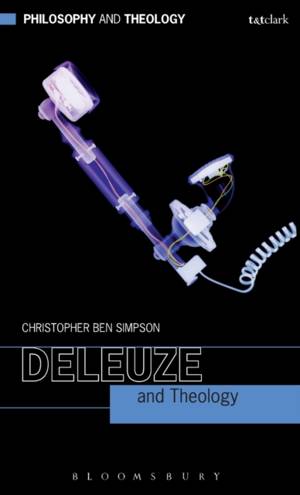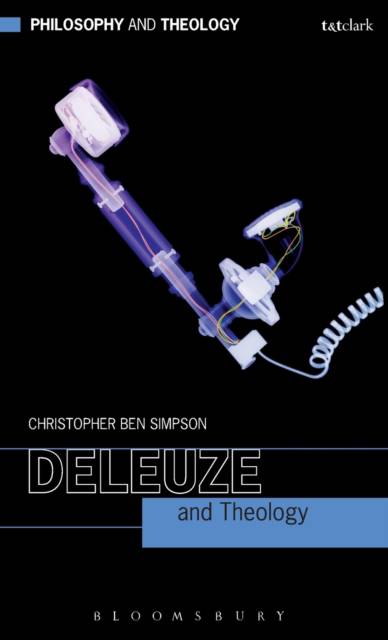
- Afhalen na 1 uur in een winkel met voorraad
- Gratis thuislevering in België vanaf € 30
- Ruim aanbod met 7 miljoen producten
- Afhalen na 1 uur in een winkel met voorraad
- Gratis thuislevering in België vanaf € 30
- Ruim aanbod met 7 miljoen producten
Omschrijving
What can a
theologian do with Deleuze? While using philosophy as a resource for theology
is nothing new, Gilles Deleuze (1925-1995) presents a kind of limit-case for
such a theological appropriation of philosophy: a thoroughly "modern"
philosophy that would seem to be fundamentally hostile to Christian theology-a
philosophy of atheistic immanence with an essentially chaotic vision of the
world. Nonetheless, Deleuze's philosophy can generate many potential
intersections with theology opening onto a field of configurations: a fractious
middle between radical Deleuzian theologies that would think through theology
and reinterpret it from the perspective of some version of Deleuzian philosophy
and other theologies that would seek to learn from and respond to Deleuze from
the perspective of confessional theology-to take from the encounter with
Deleuze an opportunity to clarify and reform an orthodox Christian
self-understanding.
Specificaties
Betrokkenen
- Auteur(s):
- Uitgeverij:
Inhoud
- Aantal bladzijden:
- 112
- Taal:
- Engels
- Reeks:
Eigenschappen
- Productcode (EAN):
- 9780567363350
- Verschijningsdatum:
- 22/11/2012
- Uitvoering:
- Hardcover
- Formaat:
- Genaaid
- Afmetingen:
- 145 mm x 221 mm
- Gewicht:
- 381 g

Alleen bij Standaard Boekhandel
Beoordelingen
We publiceren alleen reviews die voldoen aan de voorwaarden voor reviews. Bekijk onze voorwaarden voor reviews.







